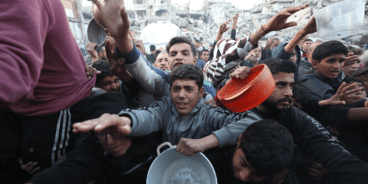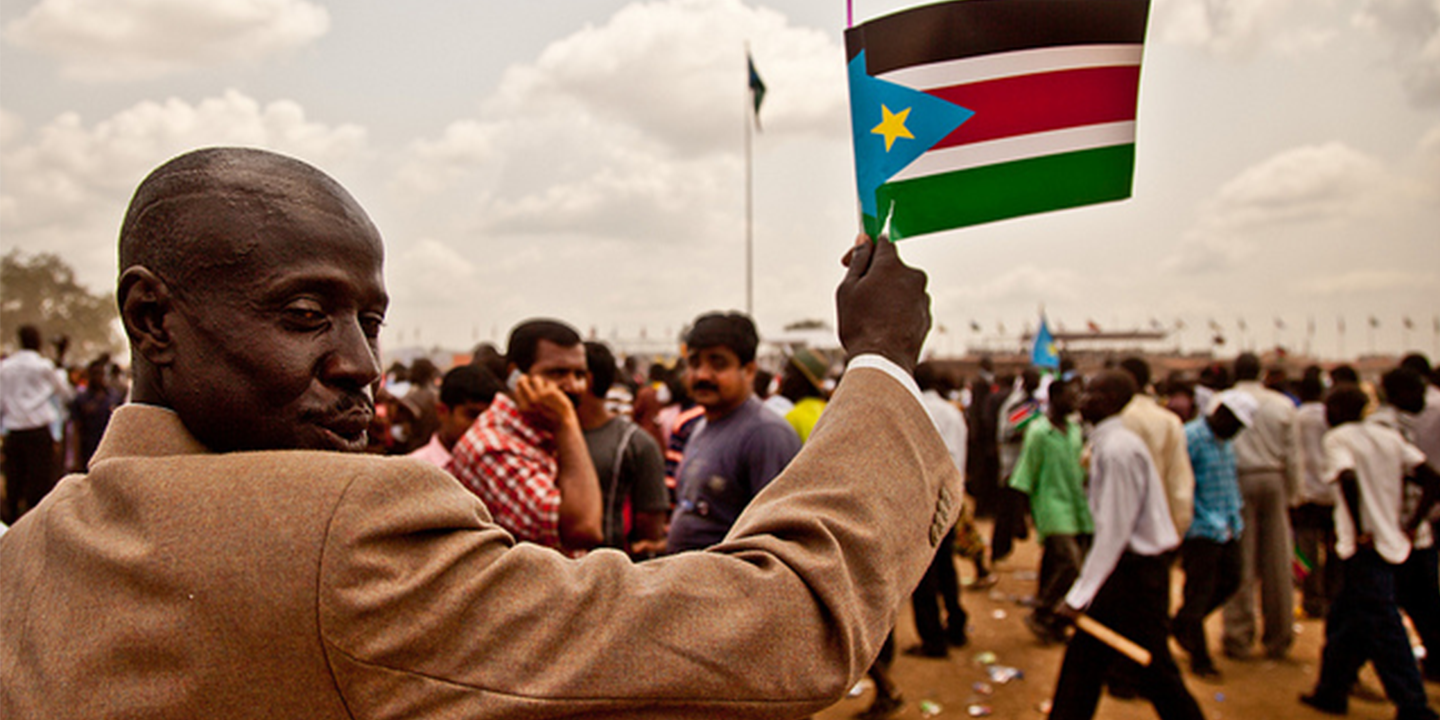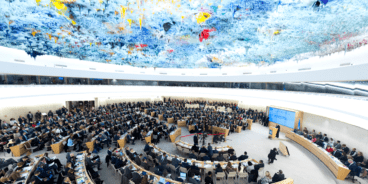

Joint NGO Letter: Extend the mandate of the UN Commission on Human Rights in South Sudan
To Permanent Representatives of Member and Observer States of the United Nations (UN) Human Rights Council
Excellencies,
We, the undersigned non-governmental organisations, write to urge your delegation to sup¬port the extension in full of the mandate of the UN Commission on Human Rights in South Sudan (“Commission” or “CHRSS”) at the upcoming UN Human Rights Council’s (“HRC” or “Council”) 46th session (22 February-23 March 2021).
As the only mechanism currently collecting and preserving evidence of violations of international humanitarian and human rights law with a view to accountability and addressing human rights and transitional justice issues in South Sudan from a holistic perspective, the CHRSS remains vital. Two and a half years after the signature of the Revitalised Peace Agreement for Resolution of the Conflict in the Republic of South Sudan (R-ARCSS), the country faces major governance, security, humanitarian, and human rights issues.
Fighting continues in parts of the country, in particular with holdout opposition groups in Yei. In other areas, particularly in Tonj, Bor, and Greater Pibor/Jonglei, inter-communal tensions and conflict con¬tinue to threaten the country’s stability and people’s safety, human rights, and livelihoods.
On 22 June 2020, the Council adopted resolution 43/27, which extended the mandate of the CHRSS for a year. By doing so, the international community made clear that continued human rights scrutiny, justice, and sustainable peace were closely interconnected.
HRC resolution 43/27 reaffirmed the importance of the mandate of the CHRSS and acknowledged that “demonstrable progress in key human rights issues of concern is critical to any future change to the mandate of the [CHRSS].” Unfortunately, there has neither been progress on key human rights issues in South Sudan nor accountability for human rights violations and abuses.
Many of the concerns a group of more than 20 organisations highlighted in a letter released ahead of the Council’s 43rd session, in February 2020, remain unaddressed. These include:
-
-
- Ongoing human rights violations and abuses and violations of international humanitarian law, including rape and sexual and gender-based violence (SGBV), deliberate starvation of civilians, recruitment and use of children in armed conflict, and attacks on civilian infrastructure, which may amount to crimes under international law, including war crimes and crimes against humanity;
- Inter-communal violence, which is fuelled by disputes over land and livelihoods, grievances over past atrocities, arms trafficking, displacement, and unresolved governance-related issues—all of which constitute significant risk factors of violations, putting individuals at continued risk of crimes under international law;
- Serious humanitarian challenges, including displacement, acute food insecurity, denial of humanitarian access, and attacks against humanitarian personnel;
- Failure to complete the implementation of Chapter II of the R-ARCSS (transitional security arrangements), which could lead to further failure of the security forces to protect civilians, renewed instability and more human rights violations;
- Attacks on civil society and civic space, evidenced by routine violations of the right to freedom of opinion and expression, unlawful arrests, prolonged detentions and torture of critics and perceived dissidents, sustained pressure over human rights defenders (HRDs), journalists, and other independent actors;
- Widespread impunity for human rights violations and abuses, in particular at the command responsibility level—for crimes perpetrated since the start of the conflict, in December 2013; and
- Failure to establish the Commission for Truth, Reconciliation and Healing (CTRH) and the Compensation and Reparation Authority (CRA), and failure to sign a Memorandum of Understanding with the African Union (AU) on the establishment of the Hybrid Court for South Sudan (HCSS) as per Chapter V of the R-ARCSS and enact legislation to operationalise the Court.
-
Since June 2020, all parties to the conflict have perpetrated serious violations of international human rights and humanitarian law, including the unlawful killing of civilians, the recruitment and use of children, and acts of sexual violence. The security forces continued to arbitrarily arrest and detain actual and perceived government opponents and other critics. The government has continued to fail in its obligation to respect and protect the right to health. Early and forced marriages are still commonplace, with detrimental effects on women’s and girls’ sexual and reproductive health. Despite the dire human rights situation, impunity for human rights violations and abuses remains the norm.
When they signed the 2015 Peace Agreement, and more recently the R-ARCSS, South Sudanese parties committed to ensuring justice for human rights violations and abuses, and African actors, such as the AU and the Intergovernmental Authority on Development (IGAD), supported this approach.
African human rights bodies have also repeatedly called on parties to implement Chapter V of the Agreement, including provisions on the establishment of the Hybrid Court, a CTRH, and a CRA. In a resolution adopted at its 65th ordinary session, the African Commission on Human and Peoples’ Rights (ACHPR) strongly condemned continued violations and stressed the need to operationalise R-ARCSS provisions, in particular Chapter V.
However, violations and abuses continue as the Revitalised Transitional Government of National Unity (National Unity Government) has failed to take key steps to prevent, deter, investigate, and punish them.
In October 2020, the CHRSS released two papers, on starvation as a method of warfare and transitional justice and accountability, respectively. In the former, the CHRSS detailed the country’s dire humanitarian situation and acts that may amount to crimes under international law. In the latter, the CHRSS highlighted the importance of Chapter V of the R-ARCSS and the absence of concrete progress in realising any accountability, national healing, or reconciliation in South Sudan. The CHRSS also analysed how national actors fuel violence by ethnic militia and paramilitary groups at the local level—which contributes to maintaining violence as a tangible option throughout the country.
As the Council recognised in June 2020, the mandate of the CHRSS should continue until such a point as demonstrable progress has been made against human rights benchmarks, and based on an assessment of risk factors of further violations. As noted above, necessary progress has not yet been made to consider a change of approach in this regard.
Eight months on, South Sudan continues to require multilateral attention. Significant challenges and threats remain, and the National Unity Government, which is still pending full formation, needs to further build confidence with African and international partners. While sustained engagement by the AU, IGAD, and the UN Security Council remains needed, the Human Rights Council has a crucial role to play.
The Council should allow the CHRSS to fulfil its responsibility with regard to all aspects of its mandate: investigation, evidence collection and preservation, monitoring, reporting, technical cooperation, and advice on transitional justice in all its dimensions: criminal accountability, truth-telling, reparations, full rehabilitation of survivors, and guarantees of non-recurrence (including through legal and judicial reform, institution-building, and ultimately reconciliation).
Any way forward should rely on human rights benchmarks and a thorough assessment of the situation and of risk factors of further violations.
Until the HCSS is fully operational and functional, the Council must ensure the renewal of the mandate of the CHRSS to secure the collection and preservation of evidence of serious crimes committed since 2013, with a view to transferring such documentation to independent and competent judicial authorities in the future.
In this context, we urge the Council at its 46th session to continue its meaningful action on South Sudan by extending the CHRSS’s mandate further.
We urge Member and Observer States to support the development and adoption of a resolution that:
-
-
- Extends the mandate of the CHRSS in full under the same agenda item;
- Recalls that the Government of South Sudan has the responsibility to protect its population from, among other human rights violations and abuses, war crimes, and crimes against humanity;
- Urges the Government and opposition groups to allow and facilitate access to all locations and persons of interest to the CHRSS;
- Urges the Government to adopt the Statute of the Hybrid Court for South Sudan and sign the Memorandum of Understanding (MoU) to formally establish and operationalise the Hybrid Court. The Government should also ensure a transparent and consultative process for progress on all three transitional justice and accountability mechanisms and finally establish its new Parliament, so that relevant legislation can be enacted;
- Urges the South Sudanese legislature, when established, to incorporate crimes under international law into the Penal Code, including but not limited to genocide, crimes against humanity, war crimes and torture, in line with definitions under international law;
- Requests that reports and updates of the CHRSS be transmitted to the UN Security Council and IGAD for consideration and further action;
- Requests that reports and updates of the CHRSS be transmitted to the ACHPR, so that they inform the latter’s briefings to the AU Peace and Security Council (AUPSC) and to support and in¬form future investigations of the Hybrid Court for South Sudan;
- Encourages the AU Commission to:
(a) work on a clear timeline with the South Sudanese Minister of Justice and Constitutional Affairs for the HCSS to effectively be made operational;
(b) consider the ongoing failure of the Government of South Sudan to reconstitute the Transitional National Legislative Assembly (TNLA), stand ready to take steps, including the establishment of the Hybrid Court for South Sudan, to ensure justice for serious crimes committed, as recommended by the AU Commission of Inquiry on South Sudan and provided for in the 2015 Peace Agreement and the 2018 Revitalised Agreement; and
(c) guarantee the transparency of the process for establishment of the Court, and ensure that South Sudanese civil society actors will be consulted throughout; - Urges all States to encourage further concrete action to deter and address ongoing violations of international law at the UN Security Council, and to exercise their jurisdiction over crimes under international law committed in South Sudan under the principle of universal jurisdiction and where the opportunity arises;
- Calls on the CHRSS to articulate clear human rights reform benchmarks or indicators against which any progress can be measured; and
- Calls on the CHRSS to enhance its engagement with civil society and human rights defenders on deliverance of its mandate, giving due attention to the increasing restrictions, threats, and attacks civil society and media actors face.
-
We thank you for your attention to these pressing issues.
Sincerely,
- African Child Care Network (ACCN)
- AfricanDefenders (Pan-African Human Rights Defenders Network)
- Amnesty International
- Assistance Mission for Africa (AMA)
- Cairo Institute for Human Rights Studies (CIHRS)
- Center for Human Rights Lawyers (CHRL) – South Sudan
- Center for Inclusive Peace and Justice (CPJ) – South Sudan
- Center for Peace and Advocacy (CPA) – South Sudan
- Center for Reproductive Rights
- CIVICUS
- Community Empowerment for Progress Organization (CEPO) – South Sudan
- Crown The Woman – South Sudan
- DefendDefenders (East and Horn of Africa Human Rights Defenders Project)
- Dialogue and Research Institute (DRI) – South Sudan
- Federation of Women Lawyers (FIDA) South Sudan
- FIDH (International Federation for Human Rights)
- Geneva for Human Rights / Genève pour les Droits de l’Homme
- Global Centre for the Responsibility to Protect (GCR2P)
- Humanitarian Development Organization (HDO) – South Sudan
- Human Rights Watch
- International Commission of Jurists
- International Movement Against All Forms of Discrimination and Racism (IMADR)
- International Service for Human Rights
- Lawyers’ Rights Watch Canada
- National Alliance for Women Lawyers – South Sudan
- National Press Club (NPC) – South Sudan
- Nile Initiative for Development (NID)
- Pan African Peacemakers Alliance (PAPA)
- Somali Journalists Syndicate (SJS)
- Southern Africa Human Rights Defenders Network (SAHRDN)
- South Sudan Action Network on Small Arms (SSANSA)
- South Sudan Human Rights Defenders Network (SSHRDN)
- South Sudan Law Society (SSLS)
- SOWETO Community Based Organization
- The Advocates for Human Rights and Democracy (TAHURID)
- Union of Journalists of South Sudan (UJOSS)
- West African Human Rights Defenders Network (ROADDH/WAHRDN)
- World Organisation Against Torture (OMCT)
Related Content


South Sudan: Adopt a strong resolution extending UN investigations for two years
